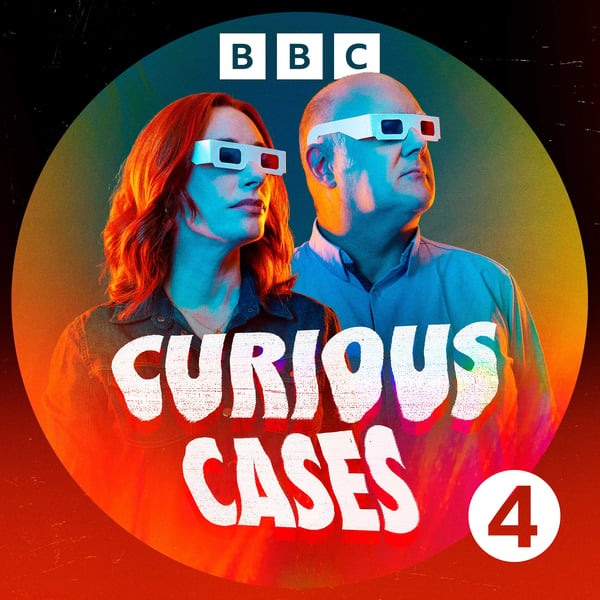The Turn of the Tide
Curious Cases
BBC
4.8 • 4.1K Ratings
🗓️ 17 March 2022
⏱️ 34 minutes
🧾️ Download transcript
Summary
Mathematician Hannah Fry and geneticist Adam Rutherford investigate your everyday science queries.
They get stuck into two questions about tides.
Lynn Godson wants to know why isn’t high tide at the same time at all points around the coast? Whilst Tim Mosedale asks, could we ever harness tidal power commercially?
Did you think tides are caused by the pull of the Moon? And that they come in and out twice a day?
Well, yes, that’s true but it turns out there’s so much more to it than that, especially here in the UK, which has the second largest tidal range in the world at the Seven Estuary near Bristol, coming in at an average of 15 metres (50ft in old money). But why should high and low tide times be so different even in places that are relatively close to each other?
The answer partly lies in something called bathymetry (which has more to do with baths than you might think – well basins at any rate).
As for harnessing sea power, there are some ambitious projects currently in development and predictions that wave and tidal could make up as much as 15 percent of the UK’s energy needs in future. But how realistic is this and how do you ensure that your power generators can survive the rigours of the ocean – storms, saltwater and all those pesky barnacles?
To help answer these queries, Hannah and Adam are joined by Physicist and Oceanographer, Helen Czerski and Professor Deborah Greaves OBE, who heads up the COAST lab at the University of Plymouth which studies marine renewable energy technologies.
Producers: Rami Tzabar and Jen Whyntie
First broadcast on BBC Radio 4 in March 2022.
Transcript
Click on a timestamp to play from that location
| 0:00.0 | I'm Dr Adam Rutherford. And I'm Dr Hannah Fry. And you are going to send us your everyday |
| 0:10.8 | mysteries. And we are going to investigate them using the power of science. Science. |
| 0:16.5 | I like it. |
| 0:21.6 | Washing into your podcast feed this morning or afternoon or evening. That's how |
| 0:25.9 | podcast work. Very good. We're having a very salty ocean-based theme for the curious |
| 0:30.7 | cases this week. And we managed to get through this entire episode without |
| 0:34.6 | making a single pirate gag. Yeah, that we did. Until then. |
| 0:46.2 | Today we are diving into something that happens twice a day every day. Do you want to take a guess, Adam? |
| 0:51.6 | Is it brushing your teeth? No, this one's more national, maybe even global, important. |
| 0:58.2 | Is it feeding my dog? No, cute, though. Thank you for mentioning Jesse again. |
| 1:03.2 | It's the tides twice a day every day for the last several billion years also. |
| 1:07.7 | And we have got two questions today about tides and you can read them out. |
| 1:11.8 | Okay, so the first comes from a listener, Lynn Godson, who asks, |
| 1:15.1 | why isn't high tide at the same time at all points around the coast? Good question, Lynn. |
| 1:21.7 | And the second, this one from Tim Mosdale, is why aren't we harnessing the power of tides |
| 1:26.1 | on a more commercial scale? Okay, well, we're going to come to that second |
| 1:29.2 | question a little bit later. But as for the first, Lynn is quite right about the timing of high tides. |
| 1:34.5 | As you would know, if you watched the local BBC Weather forecast from her area. |
| 1:38.8 | Times of high water, Padstow is 722 and 1943, Portland, 841 and 2109. |
| 1:47.3 | For our surface, so it's been good so far this week. It's good again. |
| 1:50.8 | Very seeding, isn't it, Adam? Indeed. Well, Padstown, Portland, |
| 1:54.7 | and not that far apart, as it passes on the North Coast of Cornwall, Portland, |
... |
Please login to see the full transcript.
Disclaimer: The podcast and artwork embedded on this page are from BBC, and are the property of its owner and not affiliated with or endorsed by Tapesearch.
Generated transcripts are the property of BBC and are distributed freely under the Fair Use doctrine. Transcripts generated by Tapesearch are not guaranteed to be accurate.
Copyright © Tapesearch 2026.

